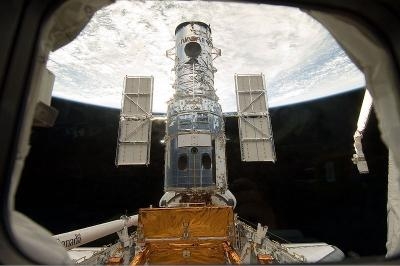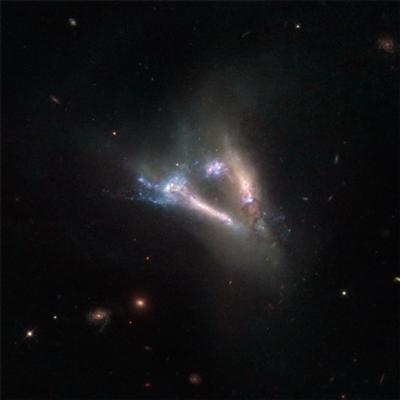Thu, Jun 24, 2021
Hubble Was Launched In 1990 And Has Conducted More Than 30 Years Of Operations
NASA continues to work to resolve a problem with the Hubble Space Telescope payload computer that halted on June 13. After performing tests on several of the computer’s memory modules, the results indicate that a different piece of computer hardware may have caused the problem, with the memory errors being only a symptom.

The operations team is investigating whether the Standard Interface (STINT) hardware, which bridges communications between the computer’s Central Processing Module (CPM) and other components, or the CPM itself is responsible for the issue. The team is currently designing tests that will be run in the next few days to attempt to further isolate the problem and identify a potential solution.
This step is important for determining what hardware is still working properly for future reference. If the problem with the payload computer can’t be fixed, the operations team will be prepared to switch to the STINT and CPM hardware onboard the backup payload computer. The team has conducted ground tests and operations procedure reviews to verify all the commanding required to perform that switch on the spacecraft.
If the backup payload computer’s CPM and STINT hardware is turned on, several days will be required to assess the computer performance and restore normal science operations. The backup computer has not been powered on since its installation in 2009; however, it was thoroughly tested on the ground prior to installation on the spacecraft.

The payload computer is a NASA Standard Spacecraft Computer-1 (NSSC-1) system built in the 1980s that is located on the Science Instrument Command and Data Handling (SI C&DH) unit. After 18 years on orbit, the original SI C&DH experienced a failure in 2008 that delayed the final servicing mission to Hubble while a replacement was prepared for flight. In May 2009, STS-125 was launched and the astronauts installed the existing unit. The replacement contains original hardware from the 1980s with four independent 64K memory modules of Complementary Metal-Oxide Semiconductor (CMOS) memory. Only one memory module is used operationally, with the other three serving as backups. All four modules can be used and accessed from either of the redundant payload computers.
Launched in 1990, with more than 30 years of operations, Hubble has made observations that have captured imaginations worldwide and deepened our knowledge of the cosmos.
More News
Cooperative Surveillance Any surveillance system, such as secondary surveillance radar (SSR), wide-area multilateration (WAM), or ADS-B, that is dependent upon the presence of cert>[...]
Aero Linx: OX5 Aviation Pioneers Incorporated in 1955 as a Pa 501 (c)(3) Not for Profit Corporation, the OX5 Aviation Pioneers is dedicated to bringing before the public the accomp>[...]
The Pilot Appeared To Regain Control After Six Rotations And Attempted To “Fly Out” Inverted But Had Insufficient Altitude On November 8, 2025, at 1038 eastern standard>[...]
From 2018 (YouTube Edition): Aero-News Talks With The Airplane's Builder One of the many unique airplanes at AirVenture 2018 was a 1/3-scale B-17 bomber built by Jack Bally, who ta>[...]
Aero Linx: Society of U.S. Army Flight Surgeons (SoUSAFS) The Society of US Army Flight Surgeons (SoUSAFS) serves to advance the science and art of Aerospace Medicine and its allie>[...]
 ANN's Daily Aero-Term (12.04.25): Cooperative Surveillance
ANN's Daily Aero-Term (12.04.25): Cooperative Surveillance ANN's Daily Aero-Linx (12.04.25)
ANN's Daily Aero-Linx (12.04.25) NTSB Prelim: Extra Flugzeugproduktions EA 300/SC
NTSB Prelim: Extra Flugzeugproduktions EA 300/SC Classic Aero-TV: The Bally Bomber - The All Time Ultimate Warbird Replica?
Classic Aero-TV: The Bally Bomber - The All Time Ultimate Warbird Replica? ANN's Daily Aero-Linx (12.05.25)
ANN's Daily Aero-Linx (12.05.25)




